Science-based innovations for a changing world
Plants, their ecosystems, the soils in which they grow, and their associated microbes are foundational to our health and the health of our planet.
In the face of a changing climate and growing pressure on natural and agricultural ecosystems, our research addresses four critical grand challenges
Explore how our faculty, staff and students are actively tackling these four grand challenges facing plant science today.
Sustainable crop production and food security
Grand Challenge Research: Sustainable crop production and food security
New winter barley provides flurry of benefits
LakeEffect, the first winter malting barley released by the Cornell Small Grains Breeding Program, is set to take the New York craft beverage industry by storm. The new variety produces high yields, is disease resistant and has a good malting profile. “What’s truly remarkable is that we took this from first cross to commercial release in just seven years, which is incredibly fast to move a new variety to market,” said Mark Sorrells, professor of plant breeding and genetics in Cornell’s School of Integrative Plant Science (SIPS) in the College of Agriculture and Life Sciences, who led the breeding effort.
Grand Challenge Research: Sustainable crop production and food security
From space to farm: readying NASA satellites to help growers
The Cornell-developed “PhytoPatholoBot” detects spectral signatures of three kinds of devastating grape diseases – powdery mildew, downy mildew and grapevine leafroll virus – leading to early management of pathogens without needing farmworkers to spot them. Ultimately, data collected by such robots will help to ground-truth NASA satellite data that could one day detect plant diseases from space.
Applied roboticist Yu Jiang, assistant professor the Horticulture Section of the School of Integrative Science, developed the PhytoPatholoBot with doctoral student Ertai Liu and plant pathologist Katie Gold, with funding from NASA Acres and U.S. Department of Agriculture National Institute of Food and Agriculture (NIFA) and VitisGen3.
Grand Challenge Research: Sustainable crop production and food security
Project explores grape-environment interactions
The $2.3 million project, funded by the National Science Foundation, will aid grape growers and winemakers as they cope with increasingly erratic climate conditions by uncovering the most adaptable varieties. Jason Londo, associate professor in the School of Integrative Plant Science’s Horticulture Section, leads a multi-institutional team exploring how genetically identical grapevines adapt to differences in temperature, humidity, soils and other environmental factors in New York, Missouri and South Dakota.
Grand Challenge Research: Sustainable crop production and food security
Rooted in a Cornell collaboration, New York state is tops for beets
NY is the top beet-producing state, thanks in part to grower support from Cornell researchers working with UV light to suppress the leaf spot fungus using drone images to spot-treat infected plants rather than spraying entire fields. These light treatments may be used in conventional beet production as well as in organic systems where synthetic fungicides are not permitted.
A fungus, Cercospora causes the ugly leaf spots on beets sold into the fresh market, said Sarah Pethybridge, associate professor in the School of Integrative Plant Science’s Plant Pathology and Plant-Microbe Biology Section at Cornell AgriTech. The disease can also defoliate the plants, making it more difficult for mechanical harvesters to pull the vegetables from the soil by their tops, she said.
Grand Challenge Research: Sustainable crop production and food security
Superweed resistant to widely used herbicide found in NYS
It can grow an inch or two a day, produce nearly a million seeds and emerge at almost any point in the growing season. Waterhemp is among the most destructive weeds U.S. growers contend with, and new research has confirmed that populations in New York state are resistant to one of the most common herbicides. Waterhemp samples from Seneca County soybean fields were five to 12 times more resistant to glyphosate than controls.
“Having the confirmation of this resistance in New York gives us the opportunity to spread the message that we should use these chemistries more judiciously and diversify our weed control practices,” said first author Vipan Kumar, associate professor in the Soil and Crop Sciences Section of the School of Integrative Plant Science.
Grand Challenge Research: Sustainable crop production and food security
A cornucopia of plant research supports farms and food systems
From developing nutrient-dense corn varieties and tasty, disease-resistant tomatoes to refining growing practices to make farming more sustainable and profitable for growers, our researchers are on the cutting edge of crop production and food security. “Those of us who uncover scientific discoveries, develop better varieties and farming practices, and distribute that knowledge to our growers are honored to be part of the community that supports food systems and wellbeing, in New York and around the globe,” said Margaret Smith, professor in the Plant Breeding and Genetics Section of the School of Integrative Science and director of the Cornell University Agricultural Experiment Station (Cornell AES), which manages a statewide network of research farms and greenhouses supporting our research.



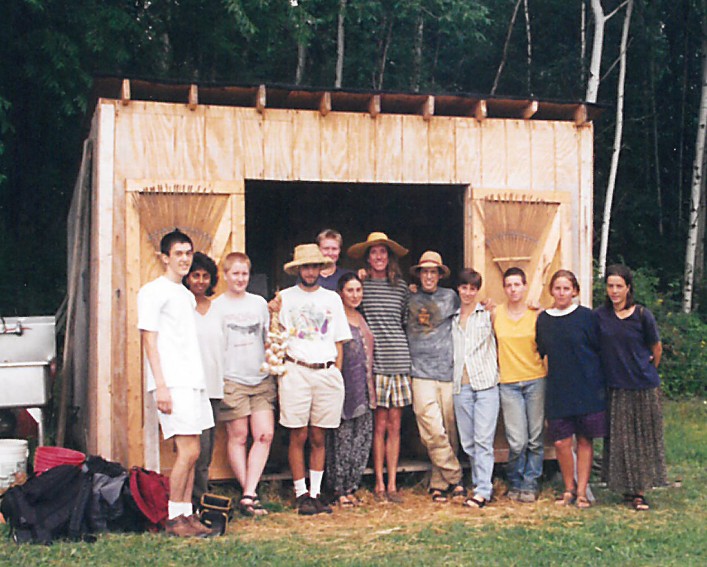


Plants and ecosystem health
Grand Challenge Research: Plants and ecosystem health
Solar solutions: Agrivoltaics offer array of options for farmland use
The Cornell Agrivoltaics Research program is overseeing projects that will test the viability of a variety of crops grown around solar panels in New York. Of particular interest is how solar panels impact weed and pest pressure, disease occurrence, soil health and productivity. Cornell can be an objective third party that can provide unbiased information to help farmers, landowners and policymakers make decisions, according to Antonio DiTommaso, professor in the School of Integrative Plant Science’s Soil and Crop Sciences Section and associate director of the Cornell University Agricultural Experiment Station. DiTommaso who leads the program.
Grand Challenge Research: Plants and ecosystem health
Destructive weed, found in NYS, resists common herbicides
Palmer amaranth populations in New York's Steuben, Genesee and Orange counties have resistance to glyphosate, the leading weed control chemistry used in soybean crops. The weed is native to the southeastern U.S. but has been spreading north as the climate warms. “We can use this information to let our growers know what to expect, so they can make good decisions about how to manage the species,” said Lynn Sosnoskie, assistant professor in the Horticulture Section of the School of Integrative Plant Science, one of the authors of the journal article reporting these findings. “We want to avoid these population blow-ups that become very difficult to control once they get going.”
Grand Challenge Research: Plants and ecosystem health
Chaotic springs, long summers mean uncertainty for NY grape growers
Breeding grapes to survive cold winters also makes them more vulnerable to late bud-killing frosts in spring, according to a study by Cornell researchers. “And this is kind of scary because for decades we’ve been breeding and planting grapes for deep midwinter hardiness, which brings along with it this trait of waking up early. But now our winters are getting warmer and more erratic, so those cultivars are more at risk for late frost damage,” said Jason Londo, associate professor in the Horticulture Section of the School of Integrative Plant Science.
Grand Challenge Research: Plants and ecosystem health
Corn-shaped seed pellets to boost habitat for monarchs, bees
Three Cornell researchers are working with industry partners to scale up a multiseed pellet technology allowing farmers to increase crop field biodiversity using their existing equipment to plant strips of milkweed or wildflowers next to their fields. The 3D-molding technology simulates the corn seed’s size and shape for smaller seeds -- formulations including milkweeds, purple coneflower, wild bergamot, and black-eyed Susans. Scientists and government agencies have long advocated for farmers to plant wildflower buffer strips to counter low biodiversity around crops, and this technology makes that feasible, say the researchers.
Grand Challenge Research: Plants and ecosystem health
NY’s first dairy farm biochar kiln advances green agriculture
Similar to charcoal, biochar is made from organic residues such as manure. Added to soil, it can retain nutrients, decrease manure storage costs, sequester carbon and reduce odors. “What’s going on at Spruce Haven Farm is quite amazing,” said biochar pioneer Johannes Lehmann, the Liberty Hyde Bailey Professor in the Soil and Crop Sciences Section of the School of Integrative Plant Science, of the 2030-cow dairy. “The farm has a large manure digester and ... they are integrating the idea of having multiple approaches to sustainability.” That includes developing a more circular nutrient process that prevents phosphates in manure from ending up in nearby Cayuga Lake or other waters and contributing to pollution and algal blooms, he added.





Biodiversity, evolution, and molecular mechanisms
Grand Challenge Research: Biodiversity, evolution, and molecular mechanisms
Flowers unfold with surprising precision, despite unruly genes
Plants grow stems, leaves and petals in a perfect pattern again and again. A new Cornell study shows that even in this precise, patterned formation in plants, gene activity inside individual cells is far more chaotic than it appears from the outside. While individual cells behave inconsistently, groups of cells work together to smooth out the noise, creating a stable, collective signal that the plant can use to guide development. “The organism can use this randomness when it wants to and ignore it when it doesn’t,” said Adrienne Roeder, professor in the Plant Biology Section of the School of Integrative Plant Science. “That’s super powerful.”
Grand Challenge Research: Biodiversity, evolution, and molecular mechanisms
Gene sequencing reveals healthier maize variants
While a staple in much of sub-Saharan Africa and Latin America, most maize varieties fall dangerously short in key nutrients like vitamin A and vitamin E. Rather than engineer a solution in the lab, Michael Gore, professor in Plant Breeding and Genetics Section, turned to maize itself. Over 15 years, Gore's lab "scanned thousands of maize varieties from around the globe. Using high-resolution mapping and advanced gene sequencing, they uncovered rare but powerful variants that naturally produce higher levels of beta-carotene, the precursor to vitamin A. Some of these maize lines, bright orange and brimming with nutrients, are now growing in Zambian fields through collaborations with HarvestPlus and CIMMYT," reports SeedWorld. “We didn’t need to invent a miracle,” Gore said. “We just had to listen to what maize already knew.”
Grand Challenge Research: Biodiversity, evolution, and molecular mechanisms
Gene discovery may help growers battle grape downy mildew
Researchers at Cornell have discovered a new grape downy mildew resistance gene – giving the wine and grape industry a powerful new tool to combat this devastating disease. “Of the downy mildew resistance genes found in the world to date, this is one of the strongest,” said Lance Cadle-Davidson, adjunct professor in the School of Integrative Plant Science in the College of Agriculture and Life Sciences, and a research plant pathologist with the USDA’s Grape Genetics Research Unit in Geneva. “The discovery could help breeders develop more resistant grape varieties.”
Grand Challenge Research: Biodiversity, evolution, and molecular mechanisms
Century-old mystery of plant communication solved
Imagine if a plant in a farmer’s field could warn a grower that it needs water? Or if a farmer could signal to plants that dry weather lies ahead. Margaret Frank, associate professor in the Plant Biology Section of the School of Integrative Plant Science, is one of the collaborators advancing our understanding of such two-way communication with plants through the efforts of the Center for Research on Programmable Plant Systems (CROPPS), which is funded by a five-year, $25 million National Science Foundation (NSF) grant.




Urban plants and ecosystem services
Grand Challenge Research: Urban plants and ecosystem services
Urban Plant Ecology Lab explores biodiversity, human-nature interactions
Under the leadership of Aaron Sexton, our new Urban Plant Ecology Lab seeks to understand how urban ecosystem management influences biodiversity patterns and processes. Research focuses around urban plant and animal communities how they influence human-nature interactions. Research topics include how urban community gardens affect pollinators and natural enemies of pests, restoration of plant-pollinator communites, urban heat island effects on timing of flowering, and impacts of urban wildfires. Techniques range from ecological field work, large-scale data synthesis, and socioecological research including collaborations around New York State, New York City and in Europe.
Grand Challenge Research: Urban plants and ecosystem services
Plants, pollen and people - assessing ecological services & 'disservices'
The Katz Lab focuses on modeling airborne pollen concentrations, quantifying the cooling effects of urban trees, and applying ecological concepts to more effectively use remote sensing for urban tree identification. "My goal is to generate the ecological knowledge necessary to address plant-related public health problems," said Dan Katz, assistant professor in the Soil and Crop Sciences Section of the School of Integrative Plant Science. "To do so, I measure ecological processes using field studies, scale from individual plants to landscapes with remote sensing, and combine these into models related to ecosystem services and disservices."
Grand Challenge Research: Urban plants and ecosystem services
Controlled Environment Agriculture (CEA) fuels urban, vertical farms
CEA is an advanced and intensive form of hydroponically-based agriculture using sophisticated lighting and environmental control systems that help make indoor farming more efficient and sustainable. See also: Greenhouse Lighting and Systems Engineering (GLASE) – a public-private partnership led by Cornell and Rensselaer Polytechnic Institute to integrate advanced energy-efficient LED lighting with improved environmental controls for more efficient and sustainable greenhouse production.
Grand Challenge Research: Urban plants and ecosystem services
Reducing climate risk from urban wildfires
In 2024, several large wildfires scorched dozens of wooded acres in several boroughs of New York City – a region previously thought to be relatively safe from fire risk. Because such fires are so rare, these sites offer a unique and exciting opportunity to study changes in plant communities caused by fire and develop ecological management strategies to prevent even more dangerous fires in the future by reducing the fire fuel-load. In 2025, our Urban Plant Ecology Lab began surveying two of the largest NYC wildfire sites – in Prospect Park in Brooklyn & Inwood Hill Park in Manhattan, and is already seeing some interesting results!




More about our research

Our researchers are making breakthroughs in understanding the important and fundamental processes at work in plants and their environments, the properties of soils and how plants interact with microbes.

Global and national food security is one the greatest challenges we face. We are working to increase food production through breeding for enhanced food value, disease management and optimized cropping systems.

Our scientists are developing sustainable agro-ecosystems that improve soil health and optimize production of forage, fuel and fiber. Our focus areas include imaging technology for environmental analysis and resource management, digital agriculture and strategizing adaptation to climate change.

Our researchers enhance human health and well-being by improving plant nutrient content and culinary appeal and by enriching the human environment through plantings in public gardens and urban and developed settings.

Our faculty conduct research on a wide variety of crop plants, ranging from global staples such as rice, small grains and potatoes, specialty crops like apples, grapes, cabbage and tomatoes, new areas of interest such as hemp and plants grown as ornamentals.

We serve growers engaged in many different agricultural systems, including organic production. Areas of focus include breeding for disease resistance, improving disease prediction and suppression and management using organic methods.
Sustainability is central to our mission
We're focused on sustainable production of food, fiber and fuel that maximizes productivity while minimizing environmental impact. Learn more about some of our many research areas directed at enhanced sustainability.

Plant productivity
Using plant breeding and improved agricultural practices, we are finding ways for plants to growth and thrive in marginal environments and local regions outside their normal range.
Improved pathogen & weed management
Plant breeding, agriculttural practices and pathogen monitoring are leading to advances in plant health. Geospatial imaging and associated data analysis enables precision applications of chemical controls for pathogens and weeds.
Plant nutritional content
Through basic research into the genetic mechanisms of nutrient uptake and production, we are producing biofortified food crops that provide important micronutrients and vitamins as well as having increased sensory appeal.
Beneficial interactions with plant-associated microbes
Microbes associated with plants have the potential to enhance plant nutrition, promote growth and suppress disease. We investigate a range of bacterial and fungi involved in these processes.
Soil health
By monitoring soil nutrients, mitigating contaminants and communicating strategies for building healthy soils, we are finding ways to enhance and maintain soil health in New York and around the world.
Enhancing the urban environment
SIPS researchers are maximizing plant-based ecosystem services in urban and developed locations by optimizing planting strategies and balancing environmental compatibility and economic feasibility.
Plant-based biofuels
We are working to reduce our fossil fuel dependence by developing willow and a variety of herbaceous plant species for use as sustainably grown sources of energy.
Agriculture in the developing world
Cornell has a long tradition of enhancing agricultural sustainability in the developing world through improved variety development, cropping systems ecology and leadership in addressing emerging challenges to agriculture worldwide.
Plant diversity
SIPS faculty, principally associated with the Bailey Hortorium, focus on characterizing biodiversity of wild and cultivated plants through time, preservation of which is integral to maintaining sustainable ecosystems.
Communicating best practices
Many of our faculty and senior researchers have extension and outreach responsibilities. Through web-based extension resources and personal communication, best practices for food production, sustainable landscapes, organic agriculture and more are communicated to a variety of stakeholders.
Affiliates and Resources
Our research excellence is enhanced by association with a variety of other institutions and support facilities
Recent research highlights
Breakthroughs, news, and other stories from the School of Integrative Plant Science
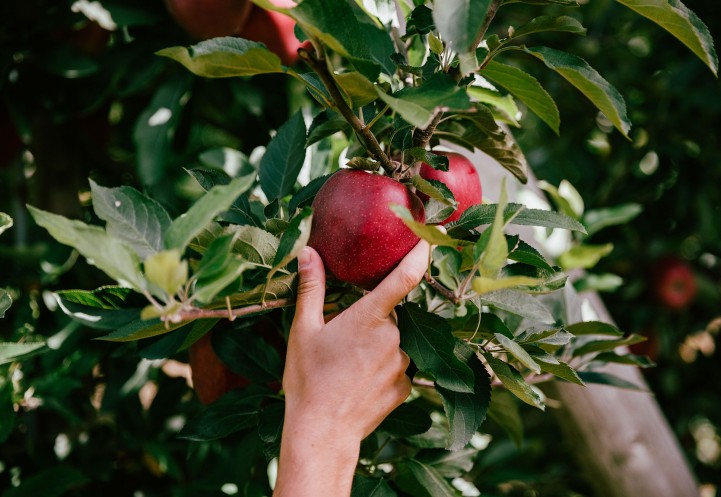
News
- Cornell AgriTech
- School of Integrative Plant Science
- Plant Pathology and Plant-Microbe Biology Section
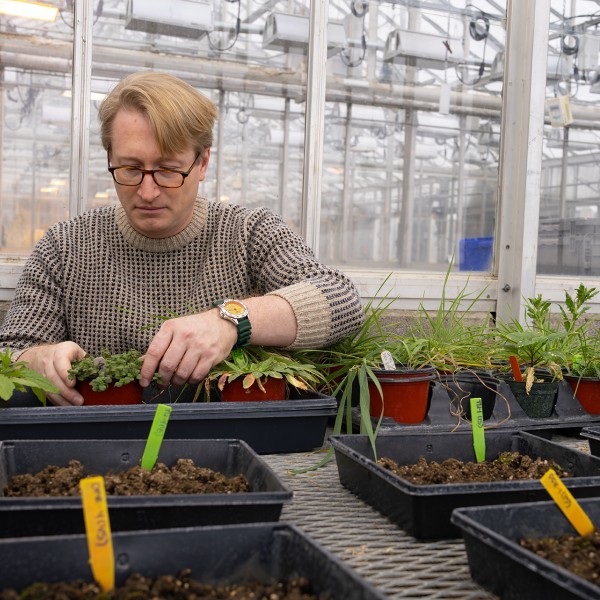
News
- Cornell University Agricultural Experiment Station
- Ecology and Evolutionary Biology
- School of Integrative Plant Science
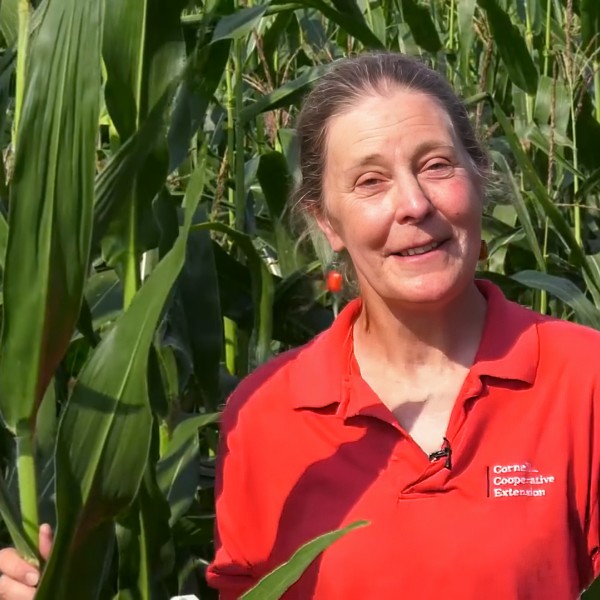
News
- Cornell University Agricultural Experiment Station
- School of Integrative Plant Science
- Plant Breeding and Genetics Section

News
As soil microbes break down plant residues, they produce a diverse set of molecules, but this diversity starts to fall after the initial phase of decomposition (roughly 32 days). Understanding how soils retain or emit carbon dioxide during this...
- School of Integrative Plant Science
- Soil and Crop Sciences Section
- Soil
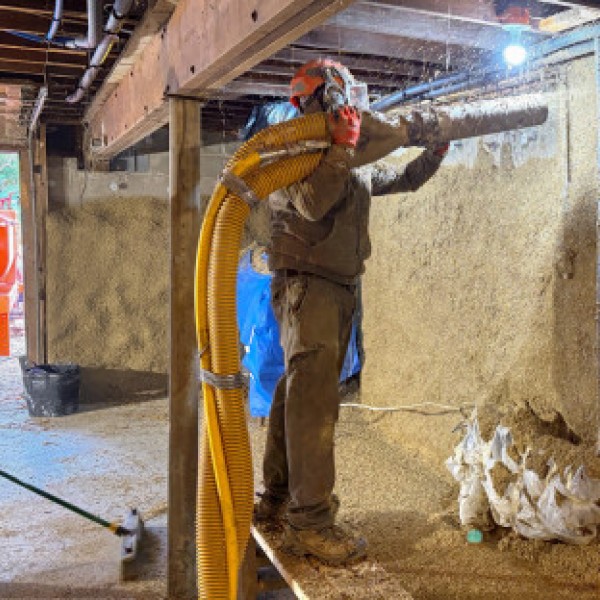
News
With a $5 million investment from New York state, Cornell is building a processing hub and “service center,” where businesses can research, develop and prototype new hemp-based materials.
- School of Integrative Plant Science
- Plant Breeding and Genetics Section
Land Acknowledgment
Cornell University is located on the traditional homelands of the Gayogo̱hó:nǫɁ (the Cayuga Nation). The Gayogo̱hó:nǫɁ are members of the Haudenosaunee Confederacy, an alliance of six sovereign Nations with a historic and contemporary presence on this land. The Confederacy precedes the establishment of Cornell University, New York state, and the United States of America. We acknowledge the painful history of Gayogo̱hó:nǫɁ dispossession, and honor the ongoing connection of Gayogo̱hó:nǫɁ people, past and present, to these lands and waters.
This land acknowledgment has been reviewed and approved by the traditional Gayogo̱hó:nǫɁ leadership. Learn more from the American Indian and Indigenous Studies Program website.

We openly share valuable knowledge.
Sign up for more insights, discoveries and solutions.




